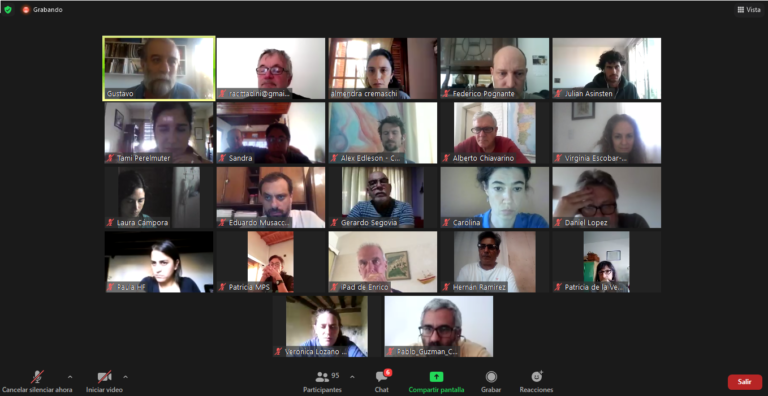Bioleft’s network continues to grow. Last Tuesday, April 21st, we held the first Workshop on Participatory Improvement and Digital Technologies in conjunction with the SemillAR program belonging to the Secretariat of Rural and Indigenous Family Agriculture (SAFCI) of the Ministry of Agriculture, Livestock and Fisheries (MAGyP).
The meeting had an important call, bringing together more than one hundred extension agents from MAGyP, INTA and INASE, along with representatives of different organizations of producers. The participation had a strong federal accent representing all regions of the country.

The workshop was dedicated to the presentation and discussion of the potential for participatory breeding, accompanied by information and communication technologies to address the problems of access to seeds adapted to the needs of family and agro-ecological producers. To this end, the work that Bioleft has been carrying out based on participatory breeding experiments in corn, sunflower and tomato and the development of a digital platform, under construction, was presented.
There was great interest in Bioleft’s work, which makes evident the need for inter-institutional and territorial collaboration to deepen and multiply participatory improvement experiences. This requires the creation of new knowledge, capable of producing seeds that respond not only to the needs of industrial agriculture, but can also support more sustainable models of agriculture, such as agroecological, organic and biodynamic.
The need to think together regulations that accompany the construction of this new paradigm was also highlighted. At present, the registration of Creole seeds is very complex. It is necessary to collaborate to build registries that prevent the criminalization of those who work for more sustainable agriculture. As Miguel Gomez, the Secretary of Family Agriculture published on his Instagram account, “The first meeting exceeded our expectations with more than 100 participants”. Seed and Bioleft ratified their commitment to continue working together, replicating the workshop in regional contexts, which fills us with enthusiasm to continue building an open and collaborative agriculture.